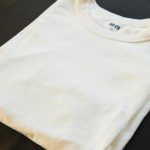Are you wondering which types of cotton are best for your baby’s clothes? Look no further!
In this article, we’ll delve into the top choices for baby clothing fabrics. From organic cotton to Pima and Supima cotton, as well as bamboo cotton blends and Egyptian cotton, we’ll explore the benefits of each option.
So, if you want to make sure your little one stays comfortable and cozy, keep reading to find out which cotton is perfect for their delicate skin.
Table of Contents
Organic Cotton
When choosing baby clothes, it’s recommended to opt for garments made from organic cotton for a safer and more environmentally-friendly option. There are several benefits of using organic cotton for baby clothes.
First and foremost, organic cotton is grown without the use of harmful pesticides and synthetic fertilizers, making it less likely to cause skin irritation or allergies. This is especially important for babies, as their skin is delicate and sensitive.
Additionally, organic cotton is free from toxic chemicals, making it a healthier choice for your little one.
Another important aspect to consider is the comparison between pima cotton and organic cotton for baby clothes. Pima cotton is known for its softness and durability, but it isn’t necessarily organic.
On the other hand, organic cotton isn’t only soft and durable, but it’s also produced in an environmentally-friendly manner. By choosing organic cotton for your baby’s clothes, you aren’t only ensuring their comfort, but also reducing the environmental impact of the textile industry.
Pima Cotton
For the best choice in baby clothes, consider using pima cotton, a soft and durable option. Pima cotton is often regarded as one of the finest types of cotton available, making it perfect for your little one’s delicate skin.
Here are some benefits of using pima cotton for baby clothes:
-
Softness: Pima cotton is renowned for its exceptional softness. Its long fibers contribute to a smooth and luxurious feel, ensuring that your baby stays comfortable throughout the day.
-
Durability: Baby clothes go through a lot of wear and tear, but pima cotton can withstand it all. Its strong fibers make it highly durable, allowing the clothes to last longer and endure repeated washes without losing their quality.
-
Breathability: Babies have delicate skin that’s prone to irritation and rashes. Pima cotton is highly breathable, allowing air to circulate freely, keeping your baby’s skin dry and reducing the risk of irritation.
Supima Cotton
When it comes to baby clothes, you want the best for your little one. Supima cotton is known for its superior softness and durability, making it a great choice for baby garments that need to withstand frequent washing and wear.
Additionally, Supima cotton is hypoallergenic and breathable, ensuring that your baby’s delicate skin stays comfortable and irritation-free.
Superior Softness and Durability
Choose Supima cotton for baby clothes if you want superior softness and durability. When it comes to your little one’s delicate skin, nothing beats the luxurious feel of Supima cotton. Here are the reasons why it’s the perfect choice for your baby’s clothing:
-
Unmatched Softness: Supima cotton is known for its incredibly soft feel, making it gentle and comfortable against your baby’s skin.
-
Long-lasting: Supima cotton is highly durable, ensuring that your baby’s clothes will withstand frequent washing and wear without losing their softness or shape.
-
Natural Fiber Benefits: Unlike cotton blend options, Supima cotton is made from 100% natural fibers. This means that it’s breathable, hypoallergenic, and less likely to cause irritation or allergies.
With Supima cotton, you can provide your little one with the highest quality fabric that offers both softness and durability.
Hypoallergenic and Breathable
Supima cotton, with its hypoallergenic and breathable properties, ensures comfort and protection for your baby’s sensitive skin. The hypoallergenic benefits of Supima cotton make it an excellent choice for baby clothes. It’s less likely to cause irritation or allergic reactions, keeping your baby comfortable and happy.
Additionally, Supima cotton has natural moisture-wicking properties, which means it can absorb and release moisture, keeping your baby’s skin dry and preventing discomfort. This is especially important for babies who tend to have sensitive skin and are prone to rashes.
The breathability of Supima cotton allows air to circulate, preventing overheating and keeping your baby cool. By choosing Supima cotton for your baby’s clothes, you can provide them with the utmost comfort and protection, ensuring a happy and healthy baby.
Bamboo Cotton Blend
To ensure the utmost comfort and softness for your little one, consider using a bamboo cotton blend for their baby clothes. This unique fabric offers several benefits that make it an excellent choice for your baby’s delicate skin:
-
Hypoallergenic: Bamboo cotton blend is naturally hypoallergenic, making it ideal for babies with sensitive skin or allergies. It’s less likely to cause irritation or rashes, keeping your baby comfortable all day long.
-
Breathable: The bamboo fibers in the blend allow for excellent breathability, ensuring that your baby stays cool and dry even in warmer weather. This helps prevent overheating and keeps your little one comfortable during playtime or naptime.
-
Soft and gentle: The combination of bamboo and cotton creates an incredibly soft and gentle fabric that feels luxurious against your baby’s skin. It’s perfect for cuddling, providing a cozy and soothing sensation for your little bundle of joy.
When it comes to caring for bamboo cotton blend baby clothes, follow these simple steps:
-
Machine wash: Use a gentle cycle and cold water to clean the clothes. Avoid using harsh detergents or bleach, as they can damage the fabric.
-
Air dry or tumble dry on low: Hang the clothes to air dry or tumble dry on a low setting. This helps maintain the softness and integrity of the fabric.
-
Avoid ironing: Bamboo cotton blend fabric tends to wrinkle less, but if needed, use a low heat setting to iron the clothes.
Egyptian Cotton
Continue to provide the utmost comfort and quality for your baby’s clothing by considering Egyptian cotton. Egyptian cotton is known for its luxurious feel and exceptional durability, making it an excellent choice for your little one’s delicate skin.
Here are some benefits of Egyptian cotton for baby clothes:
| Benefits | Description |
|---|---|
| Softness | Egyptian cotton is renowned for its softness, ensuring that your baby stays comfortable all day long. |
| Breathability | This type of cotton allows air to circulate freely, preventing your baby from overheating. |
| Hypoallergenic | Egyptian cotton is gentle on sensitive skin and less likely to cause irritations or allergies. |
To take proper care of your baby’s Egyptian cotton clothes, follow these tips:
- Use a gentle detergent: Opt for a mild, fragrance-free detergent specifically designed for baby clothes.
- Wash with care: Turn the clothes inside out before washing to protect the fabric. Use a delicate cycle with cold water.
- Avoid harsh chemicals: Skip bleach or fabric softeners, as they can damage the cotton fibers.
- Dry gently: Air-drying is the best option for Egyptian cotton, as it helps retain the fabric’s softness and prevents shrinkage.
Jersey Cotton
For even more options in terms of comfort and versatility, consider jersey cotton for your baby’s clothes. Jersey cotton is a popular choice among parents due to its numerous benefits. Here’s why jersey cotton should be on your radar when shopping for baby clothes:
-
Softness: Jersey cotton is known for its exceptional softness, making it gentle and cozy against your baby’s delicate skin.
-
Breathability: This type of cotton is highly breathable, allowing air to circulate freely and prevent overheating. It’s perfect for keeping your little one cool and comfortable, especially during warmer months.
-
Stretchiness: Jersey cotton has a natural stretch, which provides a comfortable fit and allows for easy movement. This is especially beneficial for babies who are constantly exploring and growing.
When comparing different types of cotton for baby clothes, jersey cotton stands out for its combination of comfort, breathability, and stretchiness. It’s a versatile fabric that can be used for a variety of clothing items, from onesies to pajamas.
Whether you’re looking for everyday essentials or special occasion outfits, jersey cotton is a reliable option that ensures your baby’s comfort throughout the day.
Frequently Asked Questions
Are Organic Cotton Baby Clothes More Expensive Than Regular Cotton Ones?
Organic cotton baby clothes can be more expensive than regular ones. However, the benefits of organic cotton, such as being free from harmful chemicals and better for sensitive skin, make it worth the investment for your baby’s health and comfort.
How Does Pima Cotton Differ From Supima Cotton in Terms of Quality and Softness?
Pima cotton vs. Supima cotton: Which is softer and better quality? There is a significant price difference between organic cotton baby clothes and regular cotton ones.
Can Baby Clothes Made From a Bamboo Cotton Blend Cause Any Skin Allergies or Irritations?
Using a bamboo cotton blend for baby clothes may cause skin allergies or irritations. Be cautious when selecting fabrics, and opt for cotton types that are gentle and hypoallergenic for your baby’s sensitive skin.
Is Egyptian Cotton Suitable for All Seasons or Is It More Suitable for Specific Weather Conditions?
Egyptian cotton is the best cotton for hot weather due to its breathability and ability to wick away moisture. Its advantages include being lightweight and soft, making it suitable for all seasons.
What Is the Difference Between Jersey Cotton and Other Types of Cotton When It Comes to Breathability and Comfort for Babies?
When it comes to breathability and comfort for your baby, it’s important to consider the different types of cotton. One option, jersey cotton, is known for its breathability and softness, making it a great choice for baby clothes.
- How Does Ring Spun Cotton Affect Garment Fit and Shape Retention? - August 13, 2024
- What Are the Challenges in Producing Ring Spun Cotton? - August 13, 2024
- Is Ring Spun Cotton Suitable for Plus-Size Clothing? - August 13, 2024






